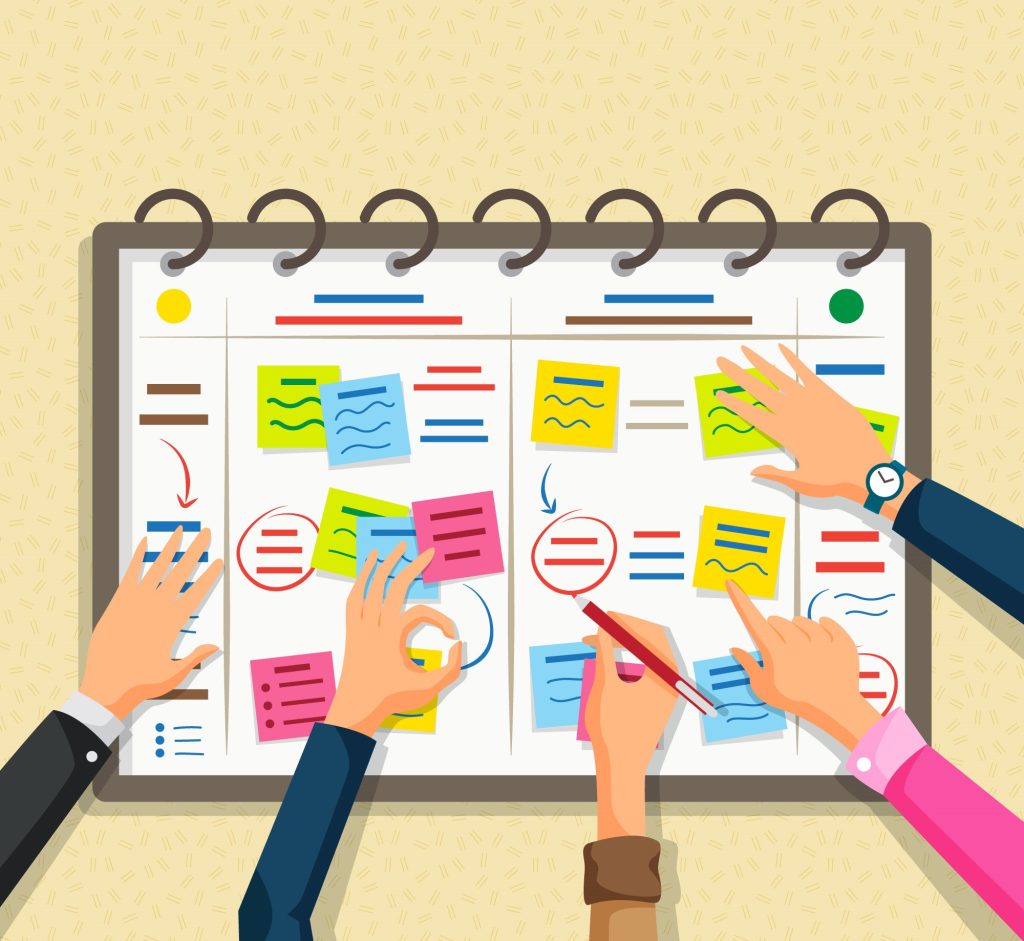Organized Notes Support Long-Term Insight
Aiden Foster July 28, 2025
In today’s information-driven world, we are constantly exposed to vast amounts of data and ideas. Whether in a classroom, at work, or during personal study, retaining and processing this information is crucial. But how do we manage all this knowledge and turn it into long-term insights? The answer lies in organized notes.
Effective note-taking does much more than help you remember what was said during a meeting or lecture—it supports long-term insight by organizing your thoughts and making the information easier to digest, retain, and recall. In fact, research in cognitive psychology shows that organizing notes helps improve memory, enhances problem-solving skills, and makes it easier to see connections between disparate pieces of information.
In this article, we will explore why organized notes are essential for long-term insight, how to structure your notes effectively, and how this practice can boost your productivity, learning, and professional growth.

Behind Organized Notes and Retention
1. How Structured Notes Improve Memory and Recall
At its core, note-taking is about encoding information in a way that allows us to retrieve it later. But not all notes are created equal. Simply jotting down random thoughts or transcribing a lecture verbatim doesn’t create the mental frameworks necessary for long-term retention.
Organized notes involve more than just writing down information—they involve structuring, summarizing, and connecting concepts in meaningful ways. This process helps us organize the information in our minds, creating mental structures that make it easier to recall later.
- Chunking Information: Research has shown that chunking—grouping related information together—helps the brain better process and retain data. Structured notes naturally encourage this process by breaking down complex information into digestible pieces. When you group related ideas together in your notes, your brain is more likely to form lasting associations between them.
- Active Learning: By organizing and summarizing information in your own words, you’re engaging in active learning. This type of learning is more effective for long-term retention than passive methods like simply reading or listening. When we actively engage with information, we deepen our understanding and make the knowledge stick.
Key Insight: Organized notes help improve memory retention by allowing us to chunk and categorize information, leading to stronger associations and better recall.
2. The Power of Visual Organization in Notes
The way information is organized visually also plays a critical role in how well we understand and retain it. Studies show that visual organization—using techniques like bullet points, tables, diagrams, and flowcharts—can enhance memory and make concepts clearer.
- Mind Mapping: Mind maps are a powerful tool for organizing thoughts and ideas visually. By starting with a central concept and branching out to related ideas, you can create a visual representation of the information that helps connect concepts and highlights relationships between them. This makes it easier to understand the big picture while still capturing the details.
- Bullet Points and Lists: Bullet points and numbered lists are great for breaking down complex information into bite-sized chunks. This method makes key points more easily digestible and creates a logical flow that helps organize the material in a clear, easy-to-follow way. Visual markers like these guide your brain in recognizing key concepts and remembering them more effectively.
Key Insight: Visual organization through tools like mind maps and bullet points helps structure information in a way that enhances memory and understanding.
How Organized Notes Boost Productivity
3. Efficient Information Retrieval
Effective note-taking doesn’t just support memory—it also boosts productivity by making it easier to retrieve information when needed. Organized notes act as a personal knowledge repository, where key ideas and solutions are easy to find and reference, saving you time and effort when you need them most.
- Quick Access to Key Information: Whether you’re preparing for a meeting, writing an essay, or tackling a work project, organized notes allow you to quickly access the information you need. Instead of searching through endless piles of disorganized notes or scrambling to recall details from memory, you can flip through your structured notes to find the specific information you’re looking for.
- Actionable Insights: Organized notes help you extract actionable insights more easily. By categorizing information into different sections—such as “key takeaways,” “action items,” and “important concepts”—you can quickly identify the most important points and take immediate action.
Key Insight: Organized notes enable faster access to critical information, helping you make quicker decisions and take action more efficiently.
4. Reducing Cognitive Overload
Cognitive overload occurs when your brain is bombarded with too much information at once, making it difficult to focus and process new material. Disorganized notes often contribute to this overload, leaving you with a scattered collection of thoughts that you have to sift through to find meaning.
On the other hand, organized notes help reduce cognitive load by giving structure to the information, allowing your brain to process it more easily.
- Clear Hierarchy: A well-organized set of notes often follows a clear hierarchy, with headings, subheadings, and bullet points that separate topics into distinct categories. This structure mirrors the brain’s natural processing of information, helping you absorb and understand the material without feeling overwhelmed.
- Less Mental Strain: When your notes are organized, there’s less need for your brain to hold onto and sort through random pieces of information. This leads to less mental fatigue and allows you to focus your energy on higher-level thinking, problem-solving, and analysis.
Key Insight: Organized notes reduce cognitive overload by providing a clear structure, allowing you to focus on important tasks without feeling mentally drained.
Best Practices for Organizing Your Notes
5. The Cornell Method
One popular method of organizing notes is the Cornell Note-Taking System, which divides the page into three sections: a narrow column for cues, a wider column for notes, and a small summary section at the bottom.
- Notes Section: During class or a meeting, you take notes in the large section. Here, you capture the main ideas, facts, and details of the discussion.
- Cues Section: After the session, use the narrow column to write down keywords or questions that correspond to the notes. This helps you identify key concepts and improves your ability to test your understanding.
- Summary Section: At the end of the page, write a summary that synthesizes the most important points. This step reinforces the material and helps consolidate your learning.
Key Insight: The Cornell Method is an effective way to organize notes that encourages active learning, review, and synthesis of information, making it easier to retain long-term insights.
6. Digital Tools for Organized Notes
While traditional pen-and-paper note-taking methods are effective, many people now rely on digital tools to organize their notes. Apps like Evernote, OneNote, and Notion offer features that help users capture, organize, and access notes across multiple devices.
- Searchable Notes: Digital tools allow you to search through your notes easily, making it simple to find specific information, even from years ago. This feature enhances your ability to retrieve information efficiently.
- Collaboration: Many digital tools also allow for easy collaboration. Whether you’re working on a team project or sharing notes with classmates, these apps allow for seamless sharing and real-time updates.
Key Insight: Digital note-taking tools offer powerful features like searchability and collaboration, helping you organize your notes more effectively and access them on the go.
Conclusion
Organized notes support long-term insight by transforming scattered information into structured, digestible chunks that are easier to process and retain. Whether through the Cornell Method, digital tools, or visual aids like mind maps, organizing your notes helps you absorb, recall, and act on information more effectively.
By reducing cognitive overload, improving memory retention, and increasing productivity, organized notes are an essential tool for anyone looking to enhance their learning and decision-making. Incorporating organized note-taking methods into your routine can help you build a personal knowledge repository that supports continuous growth and insight—both personally and professionally.
Reference
- Structured Notes Improve Memory and Recall, https://en.wikipedia.org
- Visual Structure Enhances Comprehension, https://medium.com
- Organized Notes Reduce Cognitive Overload, https://en.wikipedia.org








